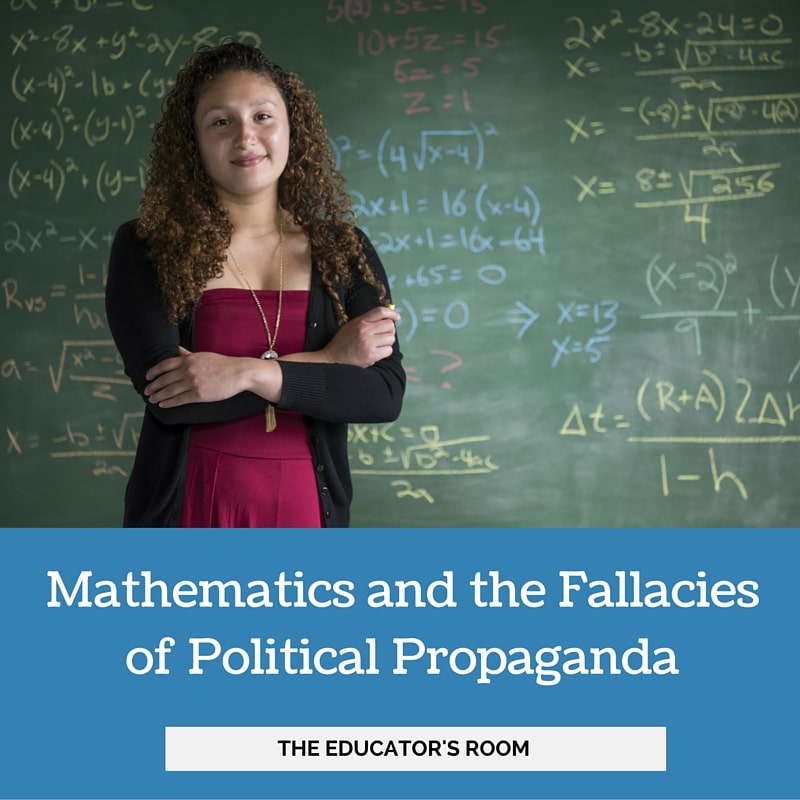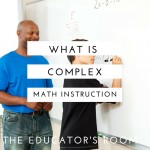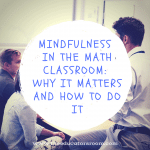During any election year, Americans can expect to be inundated with political propaganda on the television, radio, and social media . One characteristic of any campaign is the use of statistics about almost everything that is used as a political strategy to win votes.
[fusion_builder_container hundred_percent=”yes” overflow=”visible”][fusion_builder_row][fusion_builder_column type=”1_1″ background_position=”left top” background_color=”” border_size=”” border_color=”” border_style=”solid” spacing=”yes” background_image=”” background_repeat=”no-repeat” padding=”” margin_top=”0px” margin_bottom=”0px” class=”” id=”” animation_type=”” animation_speed=”0.3″ animation_direction=”left” hide_on_mobile=”no” center_content=”no” min_height=”none”][bctt tweet=”Use of statistics about almost everything that is used as a political strategy to win votes.” username=”EducatorsRoom”]
This year, in my opinion, has been the worst election year that I have ever seen because Facebook and Twitter have become the battleground for both candidates and the average American. I have had conversations with a surgeon who accused me of spreading propaganda, a man who told me that based on the data from the FBI blacks account for 51% of all murders in the US and are more likely to commit a crime, and 2 people who believed that the black community single handily got President Obama elected because he won 95% of the black vote and only 33% of the white vote.
I found all of the conversations humorous because all of the statistics that were being thrown around were riddled with fallacies or persuasive but invalid forms of logic. There are several different kinds of fallacies but Indiana Northwest University listed the most common fallacies as:
- Fallacies of Relevance:
Subjectivism: “I believe/want something to be true, therefore it is true.”
Appeal to Ignorance: “If it can’t be proved false, it must be true.” This fallacy is often disguised by the use of very plausible language.
Appeal to Emotion: This fallacy attempts to evoke an emotional response to convince the listener, and is extremely common in debates over emotionally charged issues like vivisection, abortion, and capital punishment. In can involve not only verbal arguments but the use of graphic and disturbing pictures or other media, for example of animals suffering in a laboratory.
Inappropriate Appeal to Authority: This is an attempt to get a position accepted by appealing to an inappropriate or unqualified authority.
Personal Attack: A very common technique, in which one challenges one’s opponent personally, rather than his arguments.
Non Sequitor: This fallacy is often hard to recognize, because it so often expresses a common bias or appeals to a popular sentiment. It occurs anytime the premises and conclusion of an argument are essentially unrelated.
False Cause: The second event followed the first event; therefore the first event caused the second event.
- Fallacies of Numbers and Statistics:
Appeal to Popularity (Numbers): This is the “everybody does it” fallacy so often used by school children, to which the wise parent invariably replies, “and if everybody jumped off a cliff, would you do that too?”
Hasty Generalization: This involves drawing a general conclusion on the basis of anecdotal evidence.
Bias and Availability Error: This is very common in opinion polls, and boils down to the fact that how people will respond to a question often depends very much on how the question is phrased.
As a math teacher, I understand that statistics can be used to mislead people who do not have a basic understanding of mathematics. For example, I asked the man who said that according to the FBI blacks committed 51% of all murders in the United States I asked him 3 questions: What was the total amount of murders that were committed? Over how many years? What kind of murders were committed during this time period ? I guess the man couldn’t appreciate my questions because his response was “You’re not as smart as you think.” “You’re not kicking some knowledge.” I began to laugh because in an instant he began to attack me instead of improving his argument. Before ending my conversation with this man I reminded him that the same FBI that he is referring to in 2002 mistakenly profiled the DC sniper as a white man.
Getting a good math education should be a basic right for all American children. When an adult tells me that President Obama got 95% of the black vote and only 33% of the white vote and doesn’t realize that it’s 95% of 42.6 million people or 13.3% of the U.S. population it makes me question math literacy of most Americans.
As I type this, I hope that we as educators think about the use of statistics and how they have power over people (students and adults) who don’t have the math background we have. As math educators it essential that we educate the public and our students on how important it is to question data when only one side is being presented, challenge other’s interpretation of data, and view statistics in a way that it’s not just the regurgitation of percentages but rather an analysis and interpretation, of data that is has been presented and organized by someone else.
Statistics has always been my least favorite part of the math curriculum because I always felt like it was a topic that should be covered in the science curriculum. After my conversations with the public on Facebook, this school year I plan on using the data from the FBI to address how data can affect people’s perception of different ethnic groups. For many brand new educators teaching statistics can seem out of place as it pertains to the elementary mathematics curriculum. So, if you find yourself struggling to create an authentic experiment/experience for your students just remember that you can always use real data that has been collected by various government agencies to give context to your lesson. It’s all about working smarter not harder!
 [/fusion_builder_column][/fusion_builder_row][/fusion_builder_container]
[/fusion_builder_column][/fusion_builder_row][/fusion_builder_container]






